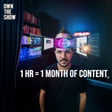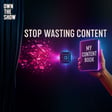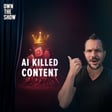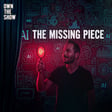
I'm Cowriting a Book with AI – This is My Process
In this AI marketing podcast, Dan Sanchez dives into the fascinating process of cowriting a book with AI, sharing his journey of crafting a comprehensive book on the 5 types of AI marketing. Dan addresses the challenges and skepticism surrounding AI-authored content and details his method for combining his own insights with AI-generated text to create a book that is both informative and compelling. He illuminates the tools he’s using, such as ChatGPT and Google Notebook LM, and emphasizes the importance of feeding AI with quality raw material and iterative collaboration. Listen to this episode if you're curious about how AI can enhance your writing projects and provide innovative assistance in content creation.
Resources Mentioned:
- AI Business Society by Social Media Examiner: https://www.socialmediaexaminer.com/aisociety/
- Google Notebook LM: https://notebooklm.google.com
- LinkedIn: https://www.linkedin.com/in/digitalmarketingdan
Timestamps:
00:00 AI-book collaborations; quality concerns persist.
06:24 Organized research supports arguments and enhances understanding.
08:27 Defining AI marketing's five types aids understanding.
10:57 Collaborated with AI to organize book chapters.
15:58 ChatGPT asks detailed questions for compelling storytelling.
19:43 AI enhances book writing as a collaborative tool.
22:22 Publishing book on Amazon and podcast, free access.


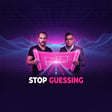

![What’s Your Authority Score? [The 5-Factor Test] image](https://media.zencastr.com/cdn-cgi/image/width=112,quality=85/image-files/630c9f06819f8b3dba5fa460/cfbaccba-f587-45de-a41f-e2c99c15e2a5.png)
![The Audience Growth Engine [Full Framework] image](https://media.zencastr.com/cdn-cgi/image/width=112,quality=85/image-files/630c9f06819f8b3dba5fa460/46b84fd1-e856-4687-9aee-6b4a7e0bc7ff.png)


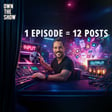
![The "Dream 100" Execution Plan [Google Sheet System] image](https://media.zencastr.com/cdn-cgi/image/width=112,quality=85/image-files/630c9f06819f8b3dba5fa460/fcd89374-76a4-4e58-a2e3-2bb7ddda4364.png)
